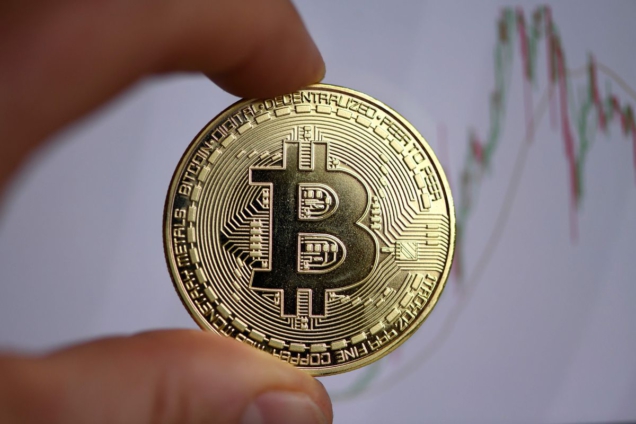Russia is considering accepting Bitcoin as payment for its oil and gas exports, according to a high-ranking lawmaker.
Pavel Zavalny says "friendly" countries could be allowed to pay in the crypto-currency or in their local currencies.
Earlier this week, Russian President Vladimir Putin said that he wanted "unfriendly" countries to buy its gas with roubles.
The move is understood to be aimed at boosting the Russian currency, which has lost over 20% in value this year.
Sanctions imposed by the UK, US and the European Union, following the invasion of Ukraine, have put a strain on Russia's rouble and raised its cost of living.
However, Russia is still the world's biggest exporter of natural gas and the second largest supplier of oil.
Mr Zavalny, who heads Russia's State Duma committee on energy, said on Thursday that the country has been exploring alternative ways to receive payment for energy exports.
He said China and Turkey were among "friendly" countries which were "not involved in the sanctions pressure".
"We have been proposing to China for a long time to switch to settlements in national currencies for roubles and yuan," said Mr Zavalny. "With Turkey, it will be lira and roubles."
Mr Zavalny added: "You can also trade bitcoins."
'More risk'
Analysts said Russia may benefit from accepting the popular cryptocurrency, despite the risks.
"Russia is very quickly feeling the impact of unprecedented sanctions," said David Broadstock, a senior research fellow at the Energy Studies Institute in Singapore. "There is a need to shore up the economy and in many ways, Bitcoin is seen as a high growth asset."
However, he noted that the value of Bitcoin has swung by as much as 30% this year. In comparison, the dollar has traded within 5% against the euro.
"Clearly accepting Bitcoin, compared with other traditional currencies, introduces considerably more risk in the trade of natural gas," Mr Broadstock said.
"Moreover, one of the major 'friendly' trade partners for Russia is China, and cryptocurrency is banned for use in China," he added. "This clearly limits potential for payment using Bitcoin."
There are concerns that Russian oligarchs could be using virtual currencies to avoid sanctions.
This has spurred Ukraine's government as well as US and European politicians to ask crypto-currency platforms to ban all Russian users.
But many firms have ruled this out.
"Some ordinary Russians are using crypto as a lifeline now that their currency has collapsed," said Brian Armstrong, chief executive of cryptocurrency firm Coinbase.
He said: "Many of them likely oppose what their country is doing, and a ban would hurt them, too."
On Wednesday, Mr Putin's comments on making "unfriendly" countries pay in roubles drove the currency to a three-week high.
However, many existing gas contracts are agreed upon in euros and it is unclear if Russia can change them. The EU relies on Russia for 40% of its gas.
Latest Stories
-
KNUST’s Prof Jacob Agbenorhevi receives dual Springer Nature Awards for excellence in scientific publishing
19 minutes -
Menstrual Hygiene Day: Tano South MCE, GES sensitise girls on proper management of periods
22 minutes -
A robust and reliable database is key to effective toll collection – Expert
24 minutes -
Parliament can’t revise Wontumi’s GH₵50m bail, seek redress in court – Deputy Speaker to Minority
33 minutes -
Kenya faces challenges in achieving its final 10% clean energy by 2030
36 minutes -
Tontokrom community initiates construction of 18-unit classroom block to promote quality education
54 minutes -
UMB names Daphne Oppong as Head of Human Capital to drive people-centred transformation
1 hour -
Allow security agencies to do their work – Tanko- Computer to NPP over Wontumi protest
1 hour -
You will be sorely missed – Akufo-Addo bids farewell to US Ambassador Virginia Palmer
2 hours -
Wontumi under probe for alleged fraud, money laundering and international organised crime – Deputy A-G
2 hours -
NADeF marks Menstrual Hygiene Day with 50,000 sanitary pads for 4,000 Schoolgirls in Ahafo communities
2 hours -
Police arrest two suspects in Fuo shooting incident
2 hours -
Properties worth GH₵50m as bail condition unreasonable – Minority on Wontumi
2 hours -
OSP vs Charles Bissue: Second accused settles for plea bargain
2 hours -
Wontumi’s arrest: GLOSARGG urges vigilance amidst political tensions
3 hours

